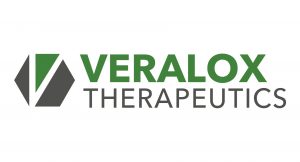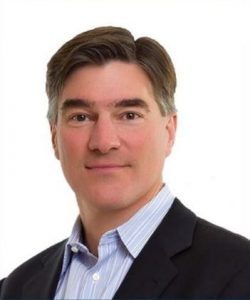
5 Questions With Rob Boulanger, PhD, Process Specialist, CRB
January 30, 2024
| This article is part of our 5 Questions With series, one of our ongoing People & Places Features. We love it because despite the consistent questioning, the answers are all unique. Be sure to FOLLOW us on LinkedIn to tell us what you think. |
Rob Boulanger, PhD is a highly-acclaimed and published biopharmaceutical scientist with expertise in process optimization and technology transfer at various production scales. He implements his process and operational expertise in both a design and consulting role by supporting biopharm clients through their various growth stages and has been involved in vaccine production facilities for over 15 years.
1. What did you want to be when you grow up? How’d you get from there to here?
When I was in high school, I excelled in math and science. One of my best subjects was chemistry. I, like most students in high school, wasn’t quite certain what I wanted to do with my life. Chemistry seemed like a safe major for me to pick since it was one of my favorite subjects. In the end, I decided to go to UMass Dartmouth (North Dartmouth, MA) and major in chemistry with a biochemistry option. My undergraduate research focused on cranberries, a Cape Cod staple, specifically how different spectrums of light impacted their anthocyanin levels (pigments). I continued graduate studies in Biochemistry at Boston College where I researched three-dimensional protein structure.
After graduating from Boston College, I was hired as a process development scientist at Protein Sciences Corporation (PSC) in Meriden, CT (a small biotech company acquired by Sanofi in 2017). During my time there, we licensed Flublok®. This was a very exciting experience that I will never forget! Being a relatively small company, I was directly involved with the FDA during the pre-approval inspection. I also led a team that transferred our process to a retrofitted facility in Pearl River, NY. During my time at PSC, I acquired invaluable hands-on experience in process, equipment, facilities, and regulations. I found that I really enjoyed the process and facility engineering side of things, and I took a position as a process specialist at CRB to help build our Rockville, MD, office in 2015.
2. How are you helping to build a more connected community?
I am an active member of several biopharmaceutical industry organizations. Specifically, I am involved in ISPE, ASME BPE and BioPhorum. I have learned a lot through my participation in these groups, and as a result, I can provide my clients with bioprocess equipment designed based on best practices set by these organizations. In addition, I am happy to communicate the latest developments from these organizations through publications, presentations, and interviews. Most recently, CRB held an event for our clients in the D.C, Maryland, and Virginia area where my team and I presented some of the latest industry trends. I presented on the topic “Protecting Product Integrity and Patient Safety with Process Closure.”
3. What are currently buzzing about? Anything and everything…
Currently, I see a growing trend to design (new and existing) facilities and processes, so they will operate more sustainably and have a higher quality, making products safer for patients. For example, closed processing can be used to isolate the process from the surrounding cleanroom environment. This means that the biggest risk to contaminating the process are those working in the cleanroom environment, this is mitigated as a potential contamination risk to the final product (i.e., safer for the patient). Also, the classification of the cleanroom can be reduced to a non-classified environment since it has no impact on the process (i.e., less energy use and more sustainable). This is a proverbial win-win, a process that is safer for the patient and more sustainable.
4. If you could travel back in time – what early career advice would you give yourself?
Well, let’s begin with some pre-career advice first. I would take a couple business courses in undergraduate school. I went back to school for my MBA and found the different perspective of business courses very valuable. I think a few business courses as electives for a science major interested in pursuing a career in biotech industry as an elective is helpful to understand the business side of the industry.
Another piece of advice I would have is, “You will observe failures, so make sure you are ready to learn from them.” These could be your failures as an individual or failures you observe where you are working. I think it is important to always approach failures such as deviations, design errors, experiment errors, etc. as invaluable learning opportunities. I find they also become very memorable events that you never forget. I have used such events to advise clients, improve equipment designs and improve facility designs.
5. Share a fun fact about yourself.
I am part owner of a craft brewery in Port Monmouth, NJ, called Ross Brewing. The founder is a close friend of mine, and it’s been quite the adventure. We planned to open in 2020, but the pandemic delayed everything. We were finally able to open our brewery in April of last year. So, if you ever find yourself near Port Monmouth, NJ, come check it out. We have a cool location right on the water near Sandy Hook Bay. On clear days you might even see the New York City skyline from our dock.
- About the Author
- Latest Posts
BioBuzz is a community led, experience focused, biotech and life sciences media and events company. BioBuzz highlights regional breaking news, industry professionals, jobs, events, and resources for business and career growth. Their weekly newsletter is subscribed to by thousands in the BioHealth Capital Region and Greater Philadelphia as the go-to for industry updates.







